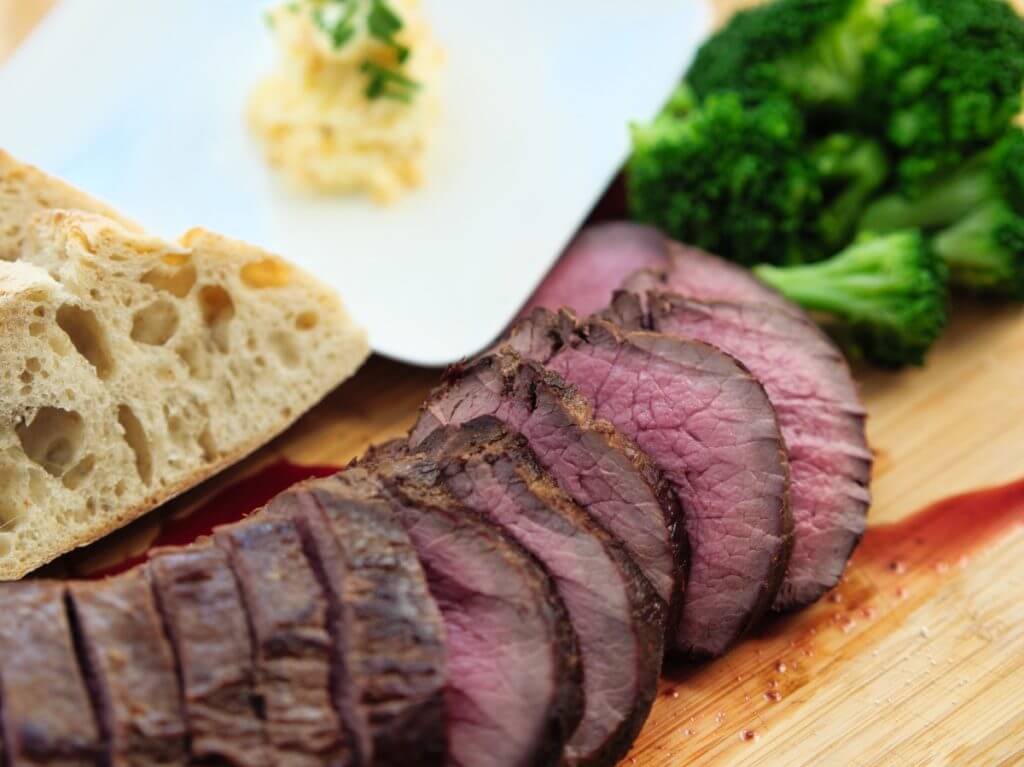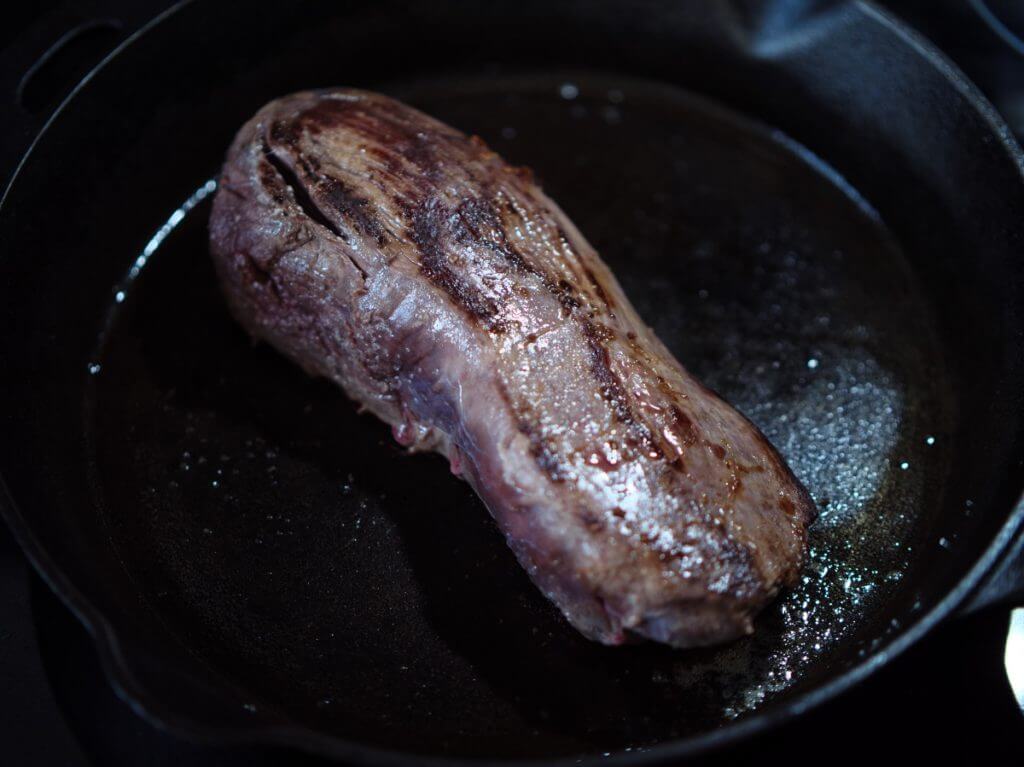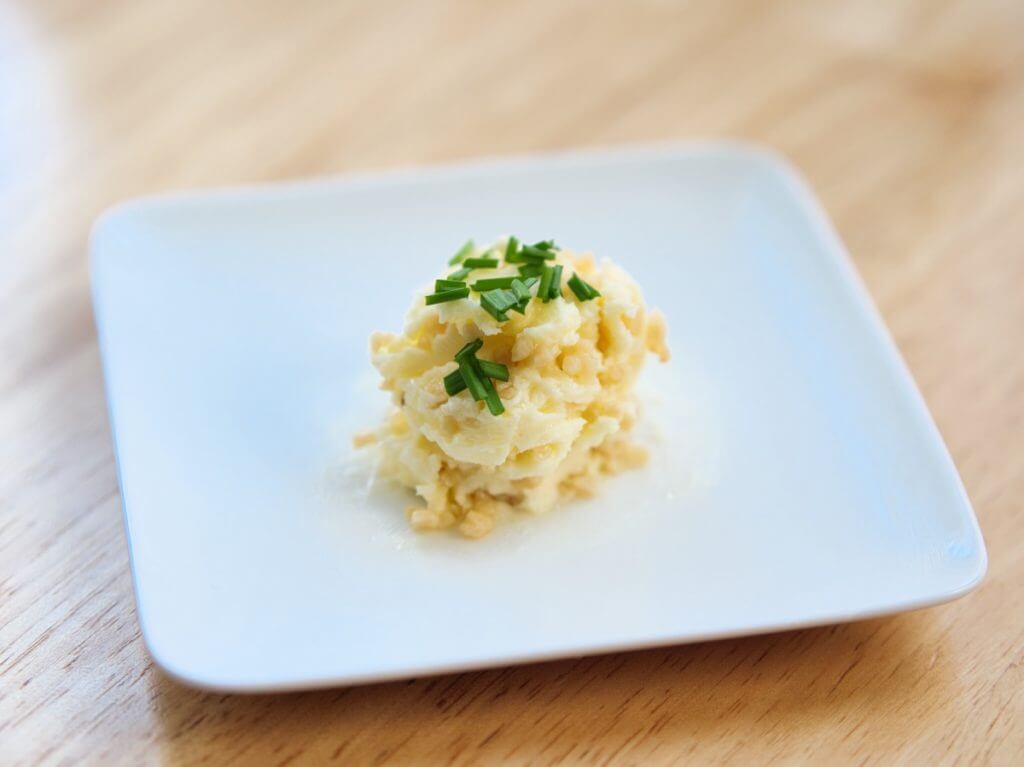
I’ve seen loads of online chatter about the perfect steak, lately, but they haven’t discussed game meat. Making a perfect steak is simple and it’s a skill we should all hone.
Game meat differs from commercial meat primarily in its fat content, which is a good thing. Our elk and antelope steaks are richer and more satisfying than anything you can buy at a steak house. They’ve simply got more meat in every bite, not to mention all the microminerals we ingest by eating animals that graze on a variety of plants. (I’m certainly not excluding deer, or whatever other big game meat you’ve got.)
But that higher protein content means we need to cook and serve a little differently than you might do with a fat-marble piece of beef.
What You Need
- Meat. Use a whole muscle instead of slicing into thin steaks. Any game meat will do. Backstraps and tenderloins are fine, but so are the large muscles off the rump. I love the top round, the largest rectangular piece off the rump. The meat in these pictures is the top round from an antelope.
- Skillet. Cast iron is excellent. A grill is good, too, but using a pan is the way to go.
- Course salt. It makes a better crust than tiny table salt crystals, but table salt can work, too.
- Butter. Get it out of the fridge so it’s room temperature and you can blend in spices.
- Garlic, minced. Or garlic powder, or onion minced, or onion powder.
What You Do
If you have a sous vide machine, you can use that set at 125°F for several hours to tenderize your meat and get it up to temperature. Otherwise, bring your meat to room temperature.
Preheat your skillet over medium to medium-high heat. I usually set it to medium while I prep the meat, then turn it up for a couple of minutes before cooking.
It’s often a good idea to rinse your meat, especially if you took it to a butcher for processing. This can remove a lot of the funk/gaminess that people talk about on wild meat. Also, take time to remove the silver skin and other membranes on the meat because this is where the funk resides.
After rinsing, dry it completely with paper towels. If the meat is wet, you cannot make that tasty crust happen. Once it’s completely dry, salt it thoroughly with coarse salt on all sides.
The goal now is to get the whole hunk truly browned. Use a little oil or ghee in the hot skillet. Lay the meat in the skillet, press it into place, and then DON’T TOUCH IT. Don’t move the meat, don’t check it. If you move it, you’ll ruin the browning crust. Give it several minutes, maybe 5 to 7 minutes.

Now flip to the other side and give it several minutes to brown. When you start to see juice coming out on the top, it’s about perfect. Mind the temperature inside, but brown all the other edges of the meat, too. Don’t let the inside temperature get too high — game meat cooked well-done doesn’t taste good because it’s too dry. Aim for about 125° to 130° or less. The internal temperature will rise while it rests.
As the meat is cooking, put a little water on a plate and warm it in the microwave for a minute. When the meat is ready, dry the plate and put the meat on it then cover it (use foil or another plate, or the lid you use to keep stuff from splattering in the microwave). The warm plate will help keep the meat warm while it rests.
Let the meat rest for 5 to 7 minutes. As it rests, the juices that moved to the edges are re-absorbed throughout and the meat will be juicier.

While the meat rests, blend the butter and garlic together. Make it strong. If you use unsalted butter you should add some salt, too. Eating your steak with butter gives your mouth all the luxury of a fatty beef steak. It’s really delicious. This is not melted butter — you should be able to spread it. Serve the butter on the side and add a little to each bite of meat.
Slice your meat into 1/4 to 1/2-inch thick slices and serve. It should have a well-browned crust with a pink center. You’ll get the salty edge with the tender center and the spark of the garlic butter will finish it off in your mouth.
Tip: Use a dark-colored plate to reduce the impact of red juices coming out of the meat for novice meat-eaters.


